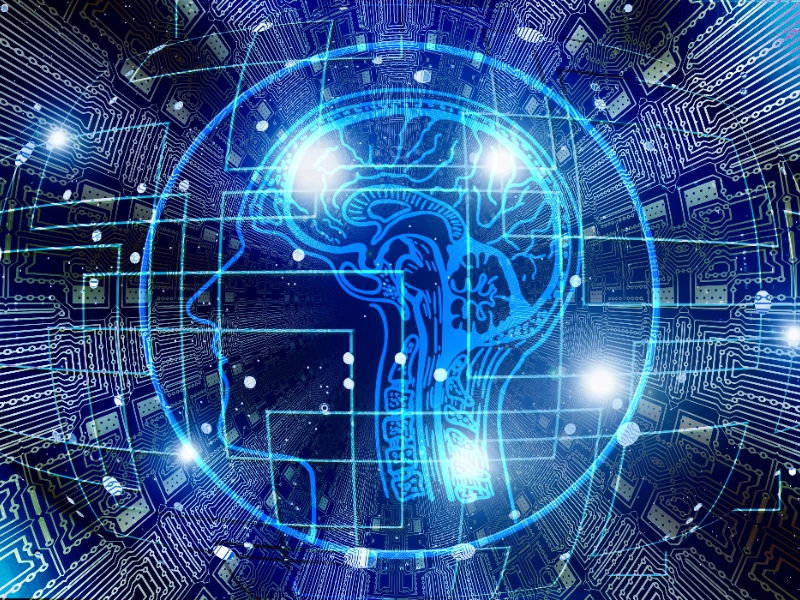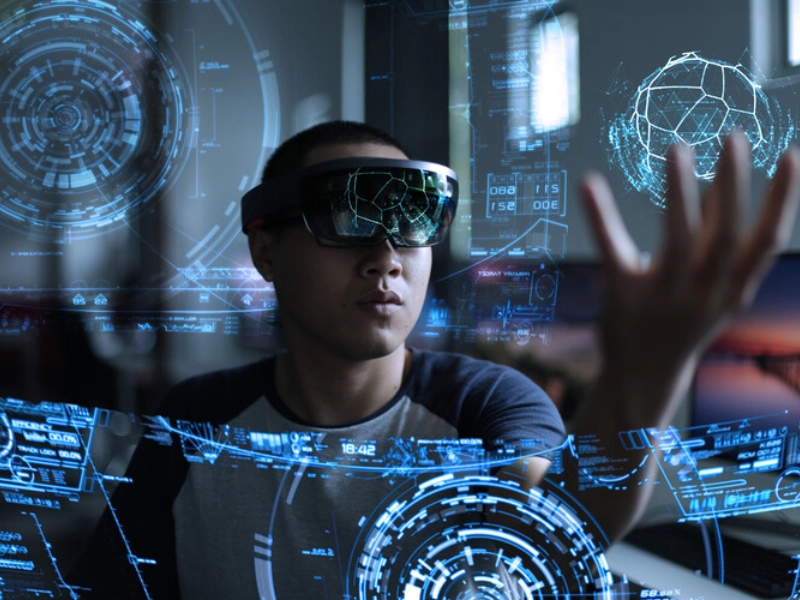Emerging Fields in Online Education
Embracing trends and making future plans are essential to staying ahead of the curve. Companies that don't take this action run the risk of falling behind. Think about Blockbuster, which was unable to adjust to Netflix and other streaming services. The popularity of online learning keeps rising. A wide range of students, including nontraditional learners, working professionals, and regular college students, are enrolled in distance learning programs during the coronavirus pandemic.
Tailored Education

Computational Intelligence
 One of the most potent new technologies is artificial intelligence, which can process enormous volumes of data and automate operations. It improves human performance and is applied to a wide range of tasks, like facial recognition and illness prediction. However, it also runs the risk of spreading false information and unintentionally breaking the law.
Programmers for computers must make sure AI adheres to fundamental human values like justice, equity, and efficiency while still being purposeful, intelligent, and adaptive. They must therefore create algorithms that take a variety of factors into account.
Narrow AI refers to the majority of contemporary AI applications, such as chatbots like ChatGPT or algorithms that identify credit card fraud. But LLMs, like the Google DeepMind model, have stoked rumors that AI will soon be able to mimic human general intelligence (AGI). If verified, this might revolutionize numerous current products and represent a major advancement in the field of artificial intelligence.
One of the most potent new technologies is artificial intelligence, which can process enormous volumes of data and automate operations. It improves human performance and is applied to a wide range of tasks, like facial recognition and illness prediction. However, it also runs the risk of spreading false information and unintentionally breaking the law.
Programmers for computers must make sure AI adheres to fundamental human values like justice, equity, and efficiency while still being purposeful, intelligent, and adaptive. They must therefore create algorithms that take a variety of factors into account.
Narrow AI refers to the majority of contemporary AI applications, such as chatbots like ChatGPT or algorithms that identify credit card fraud. But LLMs, like the Google DeepMind model, have stoked rumors that AI will soon be able to mimic human general intelligence (AGI). If verified, this might revolutionize numerous current products and represent a major advancement in the field of artificial intelligence.
Digital Reality
 A cutting-edge technology that is rapidly going mainstream and becoming more widely available is virtual reality. By giving students access to exceptional immersive learning opportunities, it has the potential to completely transform online education.
In virtual reality (VR), students can design their own customized environment and participate in hands-on learning. In a way that cannot be duplicated in a classroom, students can explore a virtual historical site or engage with a scientific concept.
Applications for AR and VR can also offer a new degree of interaction by superimposing data on actual items. This enhances users' cognitive abilities while enabling them to explore and engage with a virtual environment.
As long as there is an internet connection, you can learn from anywhere on the globe thanks to the virtual classroom. Students can study whenever it's most convenient for them because there's no longer a need to commute or adhere to a set timetable. In addition, without physically attending lectures or conversations, students can participate in them virtually.
A cutting-edge technology that is rapidly going mainstream and becoming more widely available is virtual reality. By giving students access to exceptional immersive learning opportunities, it has the potential to completely transform online education.
In virtual reality (VR), students can design their own customized environment and participate in hands-on learning. In a way that cannot be duplicated in a classroom, students can explore a virtual historical site or engage with a scientific concept.
Applications for AR and VR can also offer a new degree of interaction by superimposing data on actual items. This enhances users' cognitive abilities while enabling them to explore and engage with a virtual environment.
As long as there is an internet connection, you can learn from anywhere on the globe thanks to the virtual classroom. Students can study whenever it's most convenient for them because there's no longer a need to commute or adhere to a set timetable. In addition, without physically attending lectures or conversations, students can participate in them virtually.
Large-scale data
 The advent of virtual learning environments is simplifying the learning process for students. Instead of needing to drive great distances for classes or courses, this enables them to attend lectures whenever it is most convenient for them. Additionally, it allows them the freedom to work on tasks whenever they choose.
The term "big data" has gained popularity in the IT industry and is being used more and more in many sectors, including education. Massive volumes of data that can be examined and utilized to inform better judgments are referred to by this word. According to estimates from the McKinsey Global Institute, there is a global shortage of 1.5 million highly skilled data professionals.
According to the bibliometric analysis, during the past two years, there has been a rise in publications pertaining to big data and learning analytics in education. Learner behavior and performance, modeling and educational data warehouse, enhancement of the educational system, and integration into curriculum were the primary research themes. American authors were the most productive in this field, with the highest TP and citations.
The advent of virtual learning environments is simplifying the learning process for students. Instead of needing to drive great distances for classes or courses, this enables them to attend lectures whenever it is most convenient for them. Additionally, it allows them the freedom to work on tasks whenever they choose.
The term "big data" has gained popularity in the IT industry and is being used more and more in many sectors, including education. Massive volumes of data that can be examined and utilized to inform better judgments are referred to by this word. According to estimates from the McKinsey Global Institute, there is a global shortage of 1.5 million highly skilled data professionals.
According to the bibliometric analysis, during the past two years, there has been a rise in publications pertaining to big data and learning analytics in education. Learner behavior and performance, modeling and educational data warehouse, enhancement of the educational system, and integration into curriculum were the primary research themes. American authors were the most productive in this field, with the highest TP and citations.








